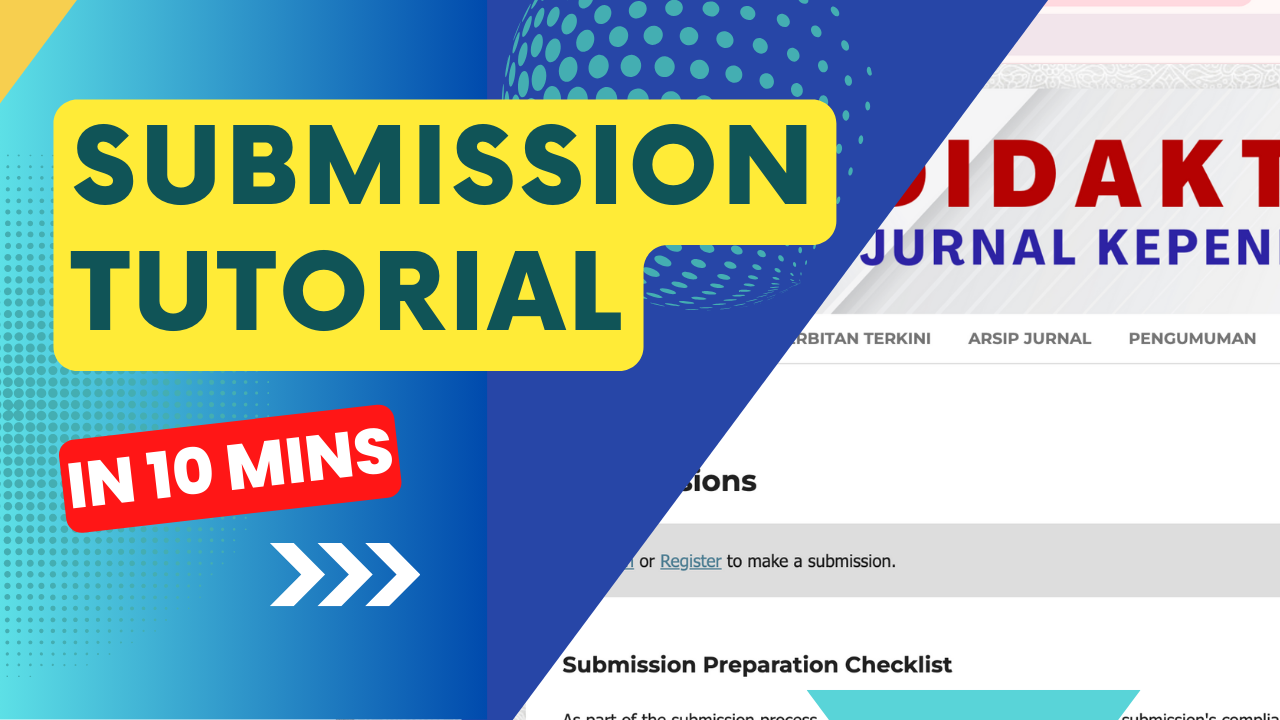Analysis of the Impact of Academic Supervision and Prasarana Tools on Teacher Performance: The Mediation Role of Teacher Competence
Abstract
This study is carried out to determine the factors that influence employees' intentions to leave their jobs in firms. The objective is to examine the impact of organizational culture and working environment on turnover intentions, with job satisfaction serving as a mediator. The research methodology employed in this study is quantitative, with a focus on a specific demographic. The sample for this study consisted of 271 employees from a corporation. The research findings indicated that both Organizational Culture and Working Environment have a positive and significant impact on Turnover intention. Organizational Culture also has a positive and significant effect on Job Satisfaction, while the Labor Environment does not significantly affect job satisfaction. Working Satisfying has a significant and positive influence on turnover intentions. Organizational culture has a meaningful impact on Turnover intentions through partial employment satisfaction as a mediator, and the working environment has a significant influence on turnover intensities through partial employee satisfaction. This implies that both the work culture and the work environment need to be consistent and comfortable within the organization's setting in order to reduce turnover intention. To achieve this, the company should maintain a consistent organizational culture and commitment, while ensuring that the work facilities are in harmony at the workplace.
Metrics
References
Arnadi, Arnadi, Purniadi Putra, and Hamdah Hamdah. “PENGARUH SUPERVISI KEPALA MADRASAH DAN KOMPETENSI GURU TERHADAP KINERJA GURU DI MADRASAH IBTIDAIYAH NEGERI SE-KABUPATEN SAMBAS.” Al-Madrasah: Jurnal Pendidikan Madrasah Ibtidaiyah 5, no. 2 (2021): 90–100.
Marhaban, and Sanusi. “Metode Tahfiz Pada Sekolah Islam Terpadu Muhammadiyah Langsa” 9, no. 1 (2023): 81–88.
Mujianto, Gideon, Pahlawansjah Harahap, and Djoko Santoso. “Peran Kecerdasan Spiritual, Intelektual, Dan Komitmen Afektif Bagi Peningkatan Kinerja Sdm.” Jurnal Riset Ekonomi Dan Bisnis 14, no. 1 (2021): 64. https://doi.org/10.26623/jreb.v14i1.3569.
Nursyam, Aisyah. “Peningkatan Minat Belajar Siswa Melalui Media Pembelajaran Berbasis Teknologi Informasi.” Ekspose: Jurnal Penelitian Hukum Dan Pendidikan 18, no. 1 (2019): 811–19. https://doi.org/10.30863/ekspose.v18i1.371.
Pala’langan, Alvin Yuwono. “Pengaruh Servant Leadership, Disiplin Kerja, Dan Kepuasan Kerja Terhadap Kinerja Guru.” Jurnal Akuntabilitas Manajemen Pendidikan 9, no. 2 (2021): 223–31. https://doi.org/10.21831/jamp.v9i2.38875.
Pangestu, Fajar Agung, and Tony Wijaya. “Hubungan Supervisi Akademik Kepala Sekolah , Motivasi Kerja, Dan Sarana Prasarana Terhadap Kinerja Guru.” Jurnal Pendidikan 7, no. 9 (2022): 388–94.
Rahmawati, Aliyah. “PENGARUH KECERDASAN INTELEKTUAL, KECERDASAN EMOSIONAL DAN KECERDASAN SPIRITUAL TERHADAP KINERJA KARYAWAN DENGAN KEPUASAN KERJA SEBAGAI VARIABEL INTERVENING DI UTD PMI KOTA MALANG.” Jurnal Ekonomi Manajemen Dan Bisnis 3, no. 1 (2022): 58–72.
Sari, M. Pengembangan Sumber Daya Manusia Di MTs Muhammadiyah Sukarame Bandar Lampung. repository.radenintan.ac.id, 2018. http://repository.radenintan.ac.id/id/eprint/4589.
Shafira Hasan, Balqis, and Suhermin. “Pengaruh Kepemimpinan, Disiplin Kerja, Dan Kepuasan Kerja Terhadap Komitmen Organisasi Suhermin Sekolah Tinggi Ilmu Ekonomi Indonesia (Stiesia) Surabaya,” 2020.
Shah, Syed Saad Hussain, Ahsan Raza Jaffari, Jabran Aziz, Wasiq Ejaz, Ihsan Ul-Haq, and Syed Neiman Raza. “Workload and Performance of Employees.” Interdisciplinary Journal of Contemporary Research in Business 3, no. 5 (2011): 256–67.
Soelistya, Djoko, Husni Mubarok, Heni Agustina, and Adiba Fuad Syamlan. “Peran Mediasi Komitmen Guru Terhadap Kinerja: Pengaruh Budaya Organisasi, Dan Motivasi.” BALANCE: Economic, Business, Management and Accounting Journal 20, no. 1 (2023): 48–62.
Sugiyono, P D. “Metode Penelitian Bisnis: Pendekatan Kuantitatif, Kualitatif, Kombinasi, Dan R&D.” Penerbit CV. Alfabeta: Bandung 225 (2017).
Sukirno, N H, M Idris, and M Hamzah. “Pengaruh Kecerdasan Emosional, Kecerdasan Intelektual, Lingkungan Kerja Terhadap Kepuasan Kerja Pegawai.” Jurnal Magister Manajemen Nobel Indonesia 2, no. April (2021): 294–301.
Supriyadi, Fristin, and Indra Yuntawari. “Y., & Ginanjar, I.(2006). Pengaruh Kualitas Produk Dan Brand Image Terhadap Keputusan Pembelian.” Jurnal Bisnis Dan Manajemen 3, no. 1 (n.d.): 137–38.
Susilowati, Yunita Henny, Ajat Sudrajat, and Ella Padillah. “Pengaruh Kompetensi Dan Supervisi Akademik Terhadap Kinerja Guru SDN Di Kecamatan Pamulang.” Jurnal Studi Guru Dan Pembelajaran 4, no. 2 (2021): 256–62.
Widiatna, Alexius Dwi. “Transformasi Pendidikan Calon Katekis Dan Guru Agama Katolik Di Era Digital.” JPAK: Jurnal Pendidikan Agama Katolik 20, no. 2 (2020): 66–82. https://doi.org/10.34150/jpak.v20i2.280.
Yustyarani, Windie, and Indah Yuliana. “Efek Mediasi Profitabilitas: Modal Intelektual, Diversifikasi Pendapatan Dan Nilai Perusahaan.” Esensi: Jurnal Bisnis Dan Manajemen 10, no. 1 (2020): 83–94.
Copyright (c) 2024 Novi Susilaningsih, Djoko Soelistya Novi, Suyoto

This work is licensed under a Creative Commons Attribution 4.0 International License.
Dengan mengirimkan naskah artikel, berarti penulis setuju dengan segala kebijakan yang ditetapkan oleh jurnal dan penerbit.
Penulis menyatakan bahwa:
- kebijakan ini telah diketahui dan disetujui bersama oleh semua penulis;
- naskah artikel belum dipublikasikan secara resmi sebelumnya di media ber-ISSN atau ber-ISBN yang terdaftar, kecuali dalam bentuk abstrak atau sebagai bagian dari materi kuliah, atau skripsi/tesis/disertasi yang tidak diterbitkan;
- naskah tidak sedang dalam proses editorial dan dipertimbangkan untuk publikasi di tempat lain;
- publikasi naskah ini telah disetujui oleh semua penulis, institusi afiliasi penulis, otoritas yang bertanggung jawab, dan lembaga di mana kegiatan telah dilakukan;
- naskah berisi materi yang aman dari pelanggaran hak cipta;
Perjanjian Hak Cipta dan Lisensi
- Penulis memiliki hak cipta dan hak kepemilikan lainnya yang terkait dengan artikel.
- Penulis memiliki hak dan diizinkan untuk menggunakan substansi artikel untuk karya-karya penulis berikutnya, termasuk untuk keperluan bahan/materi kuliah dan buku.
- Penulis menyerahkan hak publikasi pertama kepada jurnal dengan di bawah Lisensi Creative Commons (CC BY 4.0).
Pernyataan Lisensi CC BY 4.0
Anda diperbolehkan:
- Berbagi — menyalin dan menyebarluaskan kembali materi ini dalam bentuk atau format apapun;
- Adaptasi — menggubah, mengubah, dan membuat turunan dari materi ini untuk kepentingan apapun, termasuk kepentingan komersial.
Pemberi lisensi tidak dapat mencabut ketentuan di atas sepanjang Anda mematuhi ketentuan lisensi berikut ini.
- Atribusi — Anda harus mencantumkan nama yang sesuai, mencantumkan tautan terhadap lisensi, dan menyatakan bahwa telah ada perubahan yang dilakukan. Anda dapat melakukan hal ini dengan cara yang sesuai, namun tidak mengisyaratkan bahwa pemberi lisensi mendukung Anda atau penggunaan Anda.
- Tidak ada pembatasan tambahan — Anda tidak dapat menggunakan ketentuan hukum atau sarana kontrol teknologi yang secara hukum membatasi orang lain untuk melakukan hal-hal yang diizinkan lisensi ini.






.png)








